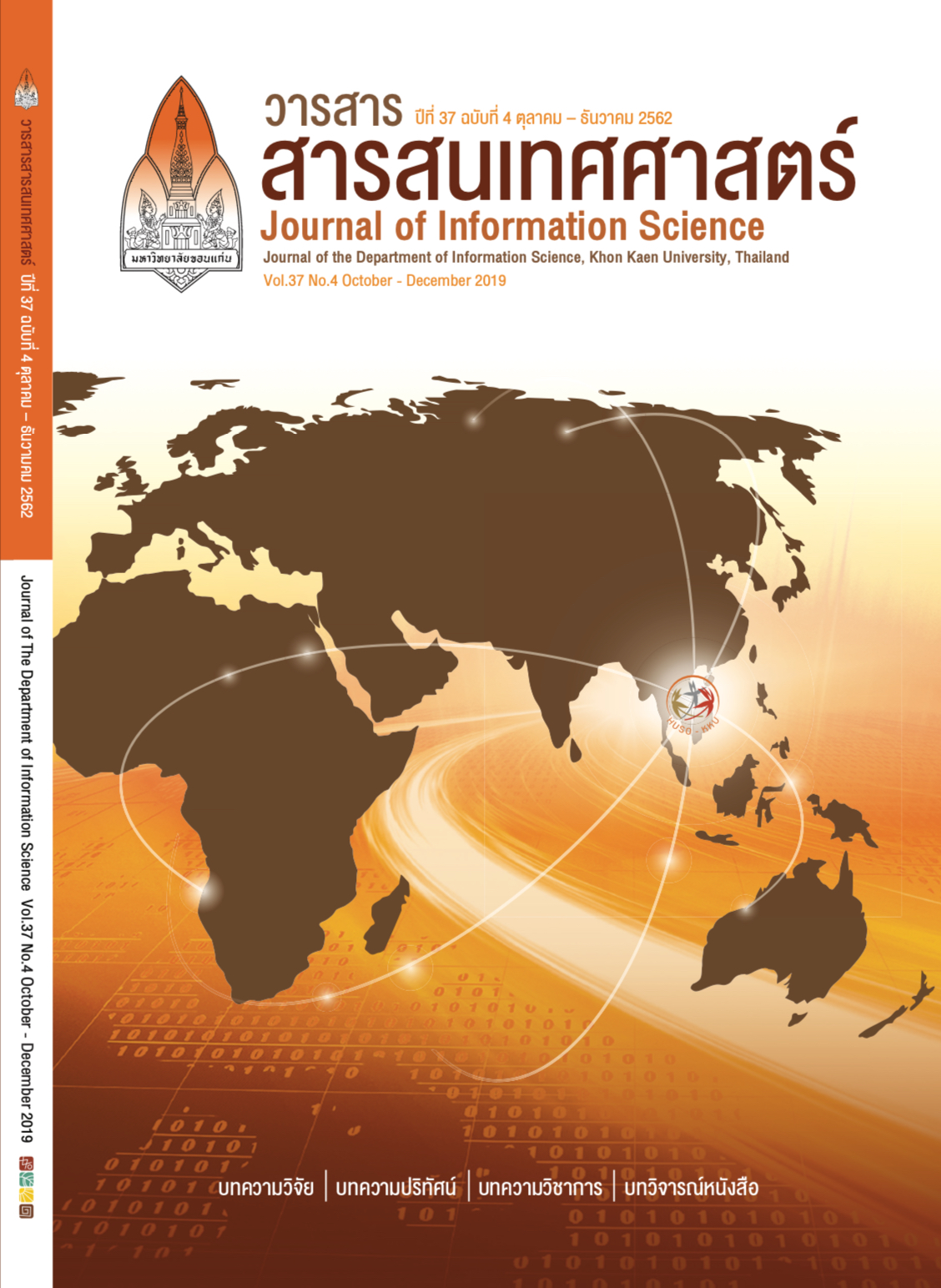Proposing a Creative Problem-Solving Learning Process Based on Activity Theory Through the Use of Computer-Supported Collaborative Learning to Enhance Information Study Students’ Library Innovation Ability
Keywords:
Creative problem solving, Computer-Supported Collaborative Learning, Activity theory, Library Innovation AbilityAbstract
This research and development study intends to present proposed creative problem-based learning process using activity theory and supported computer to enhance collaborative learning for enabling information science students to create library innovation. The research is divided into 2 stages. First, related research paper synthesis, interviews for collecting faculty members’ and librarians’ opinions on teaching and learning, and expert interviews are undertaken. Second, learning process is then developed and implemented. The findings conclude that the developed learning process is appropriate and can be implemented in teaching and learning. The process comprises 5 components: 1) information sources (location of sources, personal sources, online information sources) 2) community (instructors, students and librarians) 3) creative problem solving technique, 4) computers for supporting collaborative learning, and 5) assessment. In addition, there are 7 steps in implementing the learning process: 1) preparation stage, 2) problem awareness, 3) formulation of problem solving alternatives, 4) selection of the best problem solving alternative, 5) seeking endorsements for problem solving method, 6) planning and gaining outputs, and 7) presentation of the outputs.








